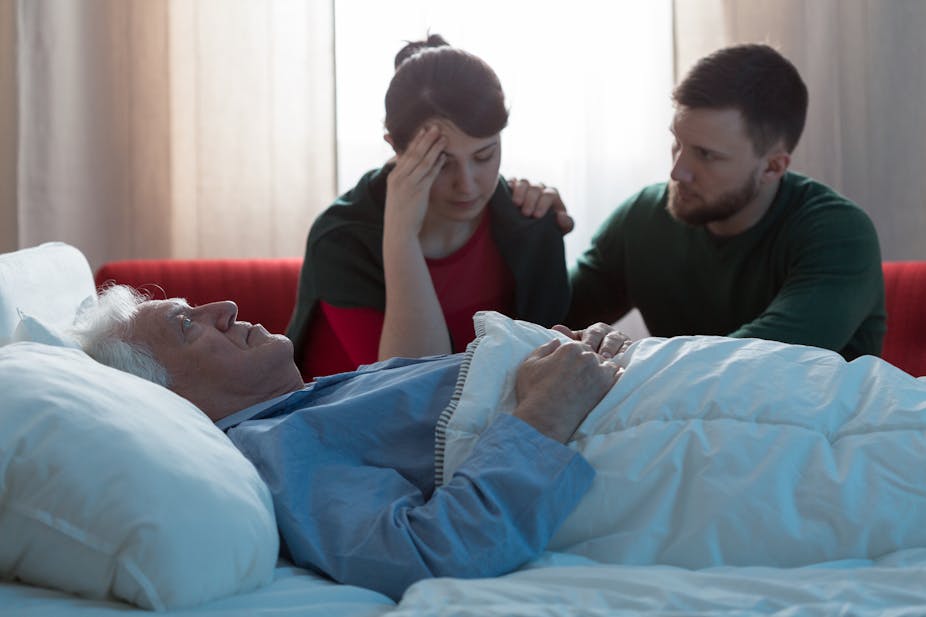It makes sense that people with terminal illnesses would want to be cared for, and die, at home. Familiar surroundings, with family and friends, are what people generally prefer and can bring comfort at the end of life.
But as people get weaker, in the last weeks or days of life, their care does become more challenging for an untrained carer. The patient might not be able to swallow, for example. When this happens, it is standard practice for medicines to be given by a syringe driver. This is a little needle under the skin attached to a pump so medicines can be given over a full 24 hours. The usual medicines that might be included are for pain, agitation, nausea or vomiting, and noisy breathing.
In some cases, however, not all symptoms can be easily relieved, and the patient may require extra medication to stop the symptoms above from breaking through. These breakthrough symptoms can occur even when a syringe driver is in place to deliver medication. When it happens, family members are advised to call a healthcare professional, usually a district nurse. The nurse will visit and give the patient an injection under the skin. But it can take a long time, often more than an hour, for the nurse to arrive and give the medicine.
District nurses have heavy caseloads, and from what we have seen this waiting time happens whether people live in urban or rural areas. It can be a distressing wait for both patient and carer, and the symptoms can worsen further by the time the nurse arrives. Carers have told us it makes them feel powerless to help their loved ones.
Lay carers
So what can done to help those in their last moments of need? In some countries, like Australia, carers are trained by nurses to give symptom-relieving medicine to their dying relatives at home. End of life care can be a controversial topic, so though family and friends being able to give medication at home may seem like an obvious choice, not everyone may welcome this approach. This is why we are now conducting a study into attitudes towards the idea, and develop a process for how it could work.
At present, nurses in the UK train families and carers to do many of the tasks that are needed. This may include basic nursing – lifting, turning and washing the person – as well as giving all the medicines the person can take by mouth, and deciding when more help is needed from a healthcare professional. Best care involves a team of support for the family or carers, and always includes a GP and district nurses who are key sources of advice and help, and often actively involved at home as needed.

Giving medicines for breakthrough symptoms is an extension of this role, and builds on excellent palliative care already in place. It is already a legal practice in Britain: carers can give strong painkillers to patients who are unable to make decisions for themselves. But as this is not yet a routine practice, the regulatory framework needs to be very clearly set out to ensure health professionals understand and are comfortable with extending this role into allowing carers to give injections.
The key issue is ensuring the families are chosen well, trained well, and feel competent to do the job. These injections will be “no-needle”, as they will go into a port already in the person’s skin, and so may perhaps be a bit less intimidating for a wary carer to administer.
Pain relief
This is not about hastening death, or pressuring carers to do more than they feel able to do. Studies have found that people in the UK put great emphasis of empowerment of family carers and symptom management in the last days of life, and so we are confident that there will be a good reception to the new practice if it is brought in.
Some NHS organisations, such as the Lincolnshire Community Health Services, have already started allowing “lay carers” to administer medication through a port. But we want to make this a more common practice, and give carers the power to help in the final moments of need. Speaking to patients, carers and health care professionals across the country, we have found that they are greatly in favour of allowing family carers to administer medications.
We are now working on a feasibility study which we hope could lead to a change in practice. We want to help make dying at home less physically and emotionally painful for both patients and carers.

